Thanks to all who joined us in the Research Cafe to hear from researchers participating in the UTS Family and Domestic Violence Network. In welcoming guests, Pro Vice-Chancellor Social Justice and Inclusion Prof Amy Persson described the new Network as being in the process of emerging within UTS.
Advancing research, policy and practice related to family and domestic violence
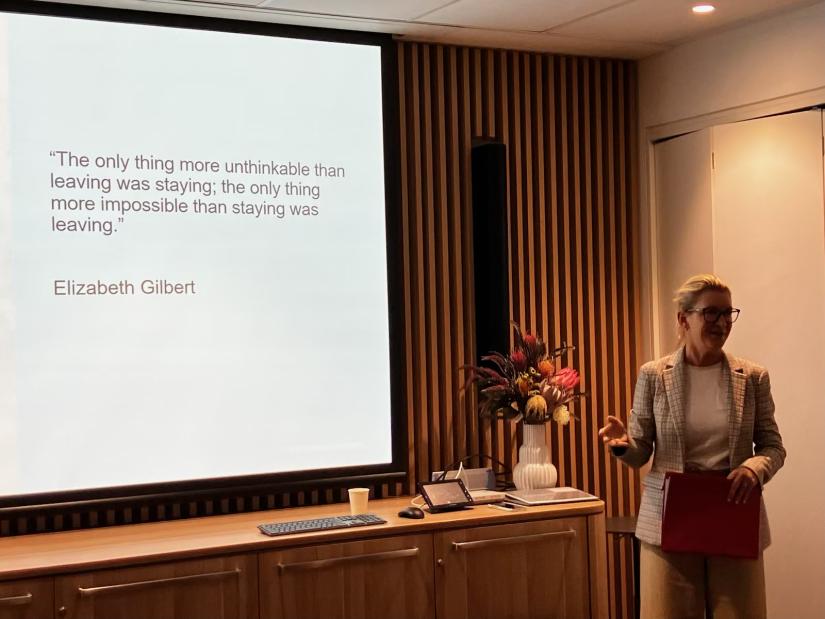
Caption
Pro Vice-Chancellor Social Justice and Inclusion Prof Amy Persson speaking at Research Cafe
“At UTS, we have an interdisciplinary focus on this incredibly vexed, complex, terrible issue,” she said. “I feel proud and privileged to be amongst those of you who are working on such important fields of research. As someone who has spent the better part of my career focused on complex social policy problems, it doesn't really get more complex.”
Amy thanked researchers for working towards solutions.
“It's very hard work, but without you, women and children will continue to suffer at completely unacceptable rates in Australia and around the world.”
Architect and lecturer Dr Samantha Donnelly opened the session by sharing her PhD research into refuges as workplaces and the importance of trauma informed design for workers in supporting women and children's recovery from violence.
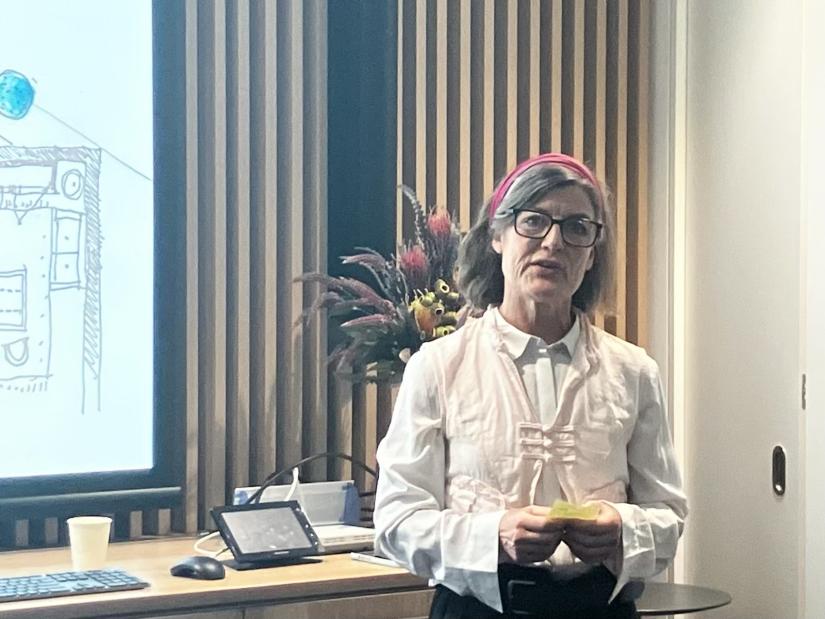
“I worked quite very closely with domestic and family violence services, an amazing bunch of people who provide really important support and advocacy, but also things like research and housing knowledge,” Samantha explained.
“They provide these services with very little funding, and in high pressured and conflicted environments. My research set out to look at the types of physical environments they work in to find out how we could better support them, through design, to do the really difficult work that they do.”
Through trauma informed practice, an emerging field of knowledge, and using a feminist care ethics perspective, Samantha considered the idea of workers receiving care.
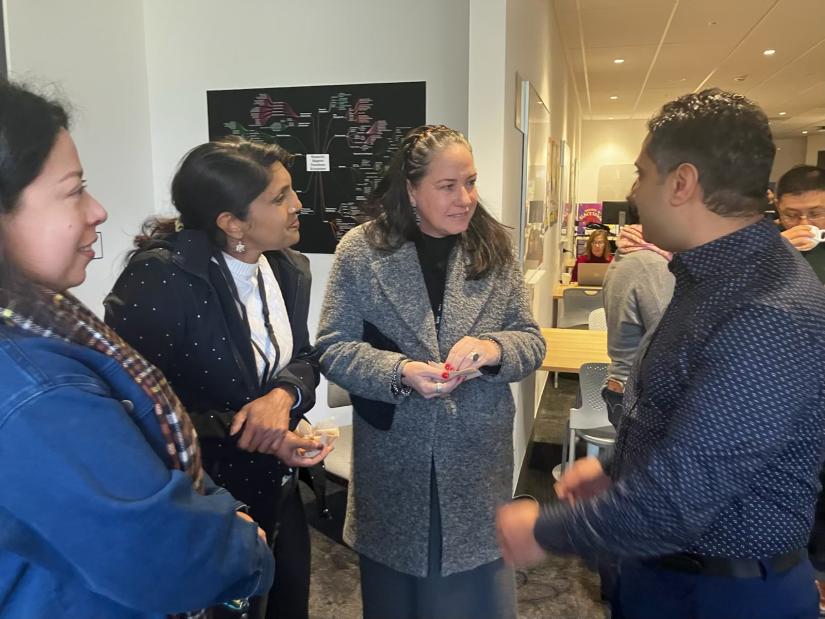
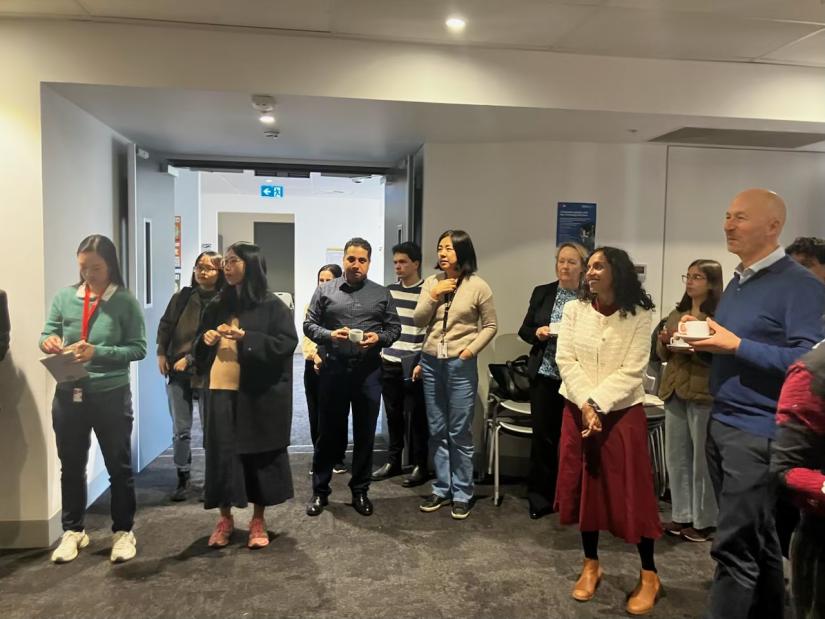
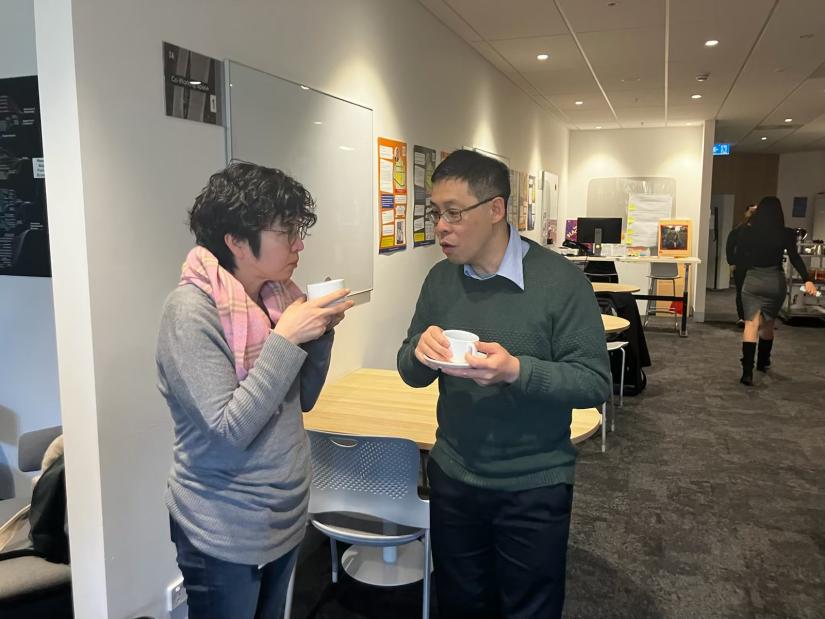
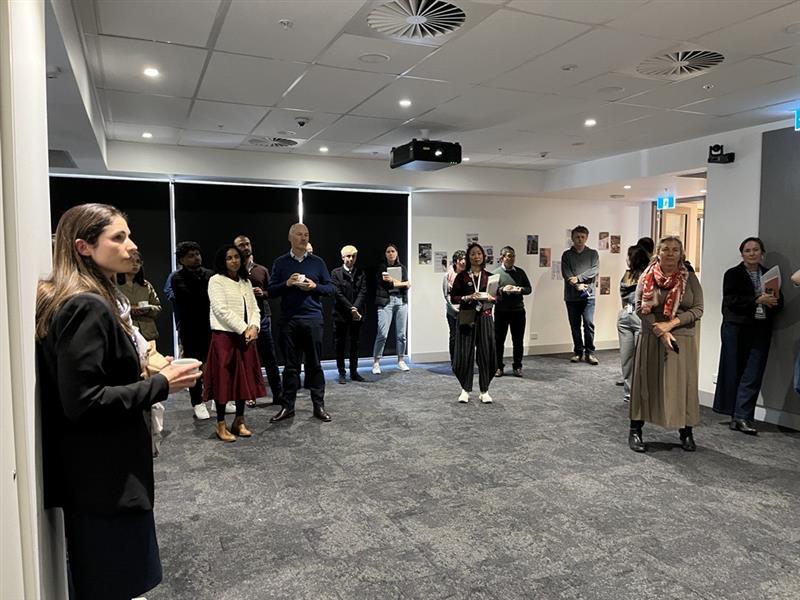
“In refuges, workers that are constantly outputting don't receive care. Among major findings of my research was that their interior spaces are constantly in flux,” she said.
“Everybody understands that a refuge is a safe space, and it's got great doors and locks, but nobody really thinks about the interiors and the way that they need to be super flexible spaces to cope with some of the constantly changing families that come through - including cultural and gender differences.”
Another finding was that trauma informed design was constantly focused on accommodation, but it never focused on the workers’ working spaces.
Secure housing is the path to rebuilding lives.
“Their offices are often just dumping grounds for paperwork, donations and people's problems, and they work in that space constantly,” said Samantha, who called for domestic violence support workers to be more closely involved in refuge design.
Next up, architect and urban designer Dr Gabriela Quintana Vigiola discussed how women and children escaping violence go through different forms of displacement.
“Secure housing is the path to rebuilding lives,” said Gabriela, whose research into housing policy revealed that women experiencing family violence are displaced over, and over, again.
“First, they need to leave the home to be displaced to a shelter. Then, they cannot stay there longer than three months. So that lack of foundation has an impact on their health and their psychological state. They may go into temporary housing, but it's only for two years, so they get displaced again,” she explained.
Gabriela is now working with Councils to understand how these issues can be addressed through better policies that will lead to a more stable housing environment for women escaping violence.
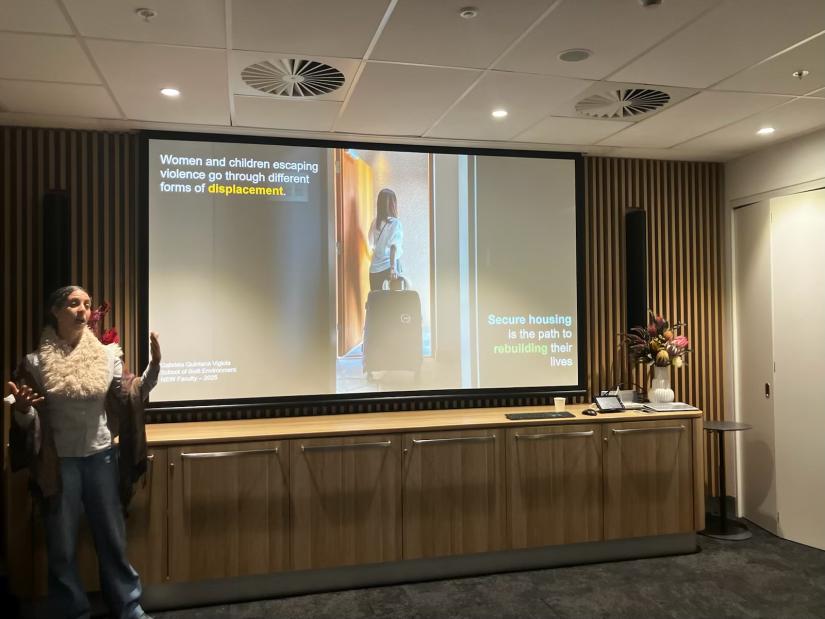
The Research Café concluded with a presentation on financial literacy and financial abuse from Dr Amir Armanious who is developing a Financial Abuse Index. A lecturer in finance, he is building an early warning indicator to assess and prevent financial abuse among women in Australia.
Using a data driven approach, Amir and colleagues began by looking at statistics. With one in four women and one in thirteen men experiencing domestic violence in 2020, and surprisingly, 90% of domestic violence survivors were subject to financial abuse.
“It is estimated that financial abuse costs the victims $5.7 billion and the economy $5.2 billion, not to mention the lasting effects of trauma to survivors who lose the best years of their life just trying to recover,” Amir said.
Amir discussed various types of financial control and abuse, including perpetrators using small amount bank transfers to harass victim survivors. He wants to develop a system that would identify the conditions in which financial abuse could start to occur.
“When we started to talk with some women, we discovered that financial abuse could include when you are married and allowed to spend on consumer goods using a partner’s credit card but not allowed to have a savings account,” he said.
“You are not allowed to have any personal savings or investment, but you do not realise it is a financial abuse.”
Other risks of financial abuse could be related to cultural norms, such as in communities where it is typical for men to control the finances, or when there is poor financial literacy.
There is a critical need for a national awareness campaign to address financial abuse, with the goal of empowering women to recognise and reject such abuse and educating men to understand that financial control is not a form of protection.
“What we need to do is develop a financial abuse early warning indicator that would include financial literacy and psychological constructs,” Amir said, adding that financial behaviour is also important to consider as it often does not align with a person’s financial knowledge.
“What is their attitude towards money? In some cultures, people believe that money is the root of all evil.”
Amir said that the Financial Abuse Index is intended to identify women who experience financial abuse or may be heading into financial abuse and then provide early intervention methods that will help stop abuse before it happens.
“And as we use apps to transfer money and invest, the Index needs to include digital financial knowledge, behaviour and attitude as well,” he said.
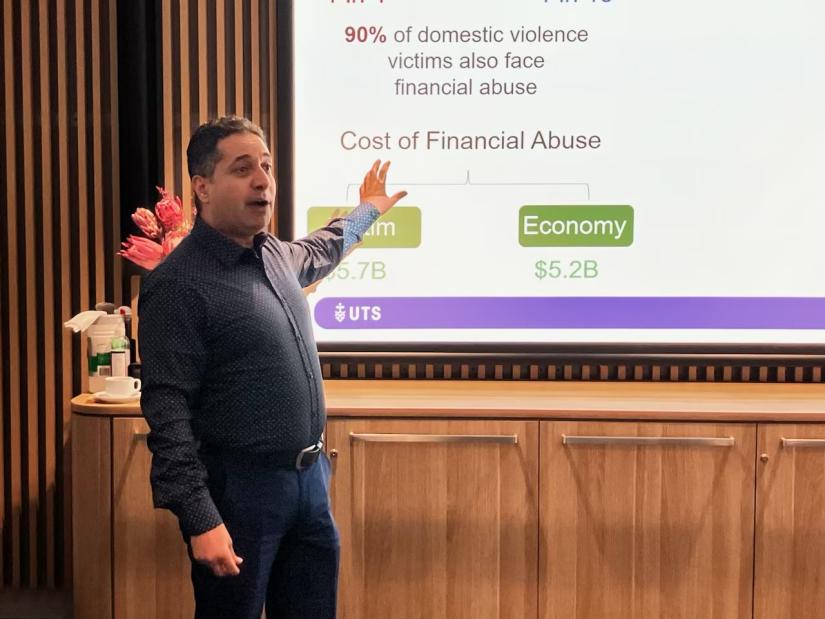
“There is a critical need for a national awareness campaign to address financial abuse, with the goal of empowering women to recognise and reject such abuse and educating men to understand that financial control is not a form of protection. We need to raise awareness and gradually shift towards fostering meaningful behavioural change.”
Get involved with the Network
The UTS Family and Domestic Violence Research Network is led by academics Associate Professor Jane Wangmann, Senior Lecturer Mihajla Gavin and Dr Samantha Donnelly. It brings together researchers and advocates committed to advancing knowledge and collaboration in this critical field.
If you’re interested in joining the Network or learning more, please contact Christine Lai, Research Networks Coordinator, by email at christine.lai@uts.edu.au.
Learn more about Research Cafe and access slides from past presentations.
Email REShub@uts.edu.au to receive the calendar invitation.